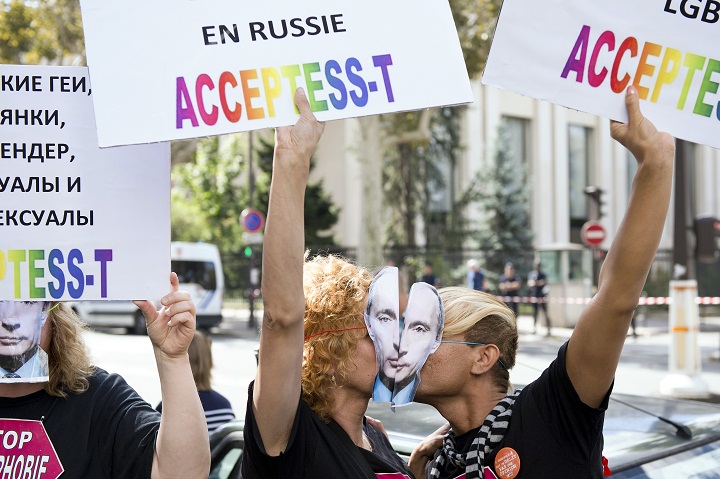SAN FRANCISCO – A federal appeals court has ordered immigration officials to review their decision not to grant asylum to a gay man who said he was attacked for his sexual orientation in 2002 and 2003 in his native Russia and feared he would be persecuted if forced to return there.

The U.S. Department of Justice’s Board of Immigration Appeals was wrong when it concluded that the man had failed to show that government officials in Russia were either unwilling or unable to control his attackers, the 9th U.S. Circuit Court of Appeals ruled on Wednesday.
The man was only identified as “John Doe” in the opinion.
Read more: Gay rights rally in St. Petersburg ends in violence
“The government failed to present any evidence to rebut Doe’s undisputed testimony that he suffered serious assaults at the hands of individuals on account of his homosexuality or to show that the Russian government was able and willing to control non-governmental actors who attack homosexuals,” the court said.
It ordered the board to review the case and said federal officials had to show circumstances had changed in Russia to allay the man’s fears, or that he could be relocated to a safe area in the country.

Get breaking National news
A call and email to the Department of Justice’s Executive Office for Immigration Review was not immediately returned on Thursday. Government offices were closed for the Thanksgiving holiday.
Someone who answered the phone at the Russian Embassy in Washington said the embassy was also closed. Emails to the Russian Consulate in San Francisco were not immediately returned.
The ruling comes after Russian lawmakers passed a law this summer banning gay “propaganda,” prompting some activists to call for a boycott of the 2014 Winter Games in Sochi. President Vladimir Putin has said the law won’t infringe on the rights of gays, and athletes and activists will not be punished if they raise rainbow flags or have rainbow-colored fingernails.
The man seeking asylum in the 9th Circuit case said he was beaten and kicked while walking in a park with his partner in September 2002, according to court records. He had joined a club for gays that year at the age of 18 while he was in his first year of college in the city of Ulan-Ude, and said his five attackers included classmates.
When he filed a complaint naming his attackers, police said his injuries were not serious and asked why he had not defended himself, according to court records.
The second attack occurred in April 2003 when he was at a restaurant with his partner. He was knocked unconscious and suffered a concussion. In that case, he said law enforcement officials rejected the case, citing a Russian regulation.
He moved to the United States in November 2003 to attend an English language school. Federal officials initiated removal proceedings against him two years later on the grounds that he violated the conditions of his stay when he stopped attending school.







Comments